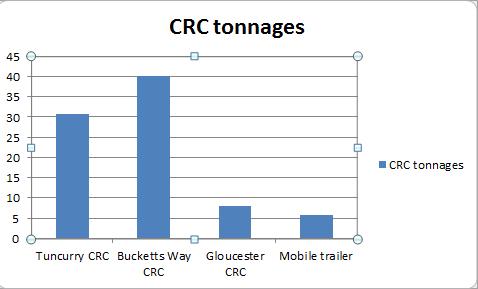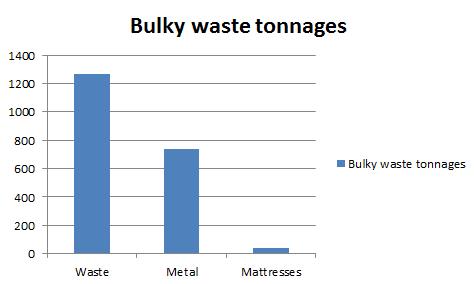
7 minute read
Appendices
Appendix 1: Policy framework for waste management
Local government framework
The Local Government Act 1993 requires all councils in NSW to raise a charge on domestic premises where a waste collection service is available. In addition, councils must also promote a more responsible, sustainable and integrated approach to waste management. This includes the provision of education to residents, businesses and developers, other waste management services, waste policy and law enforcement.
Local governments’ responsibilities in Australia generally extend no further than mixed solid waste (MSW). Local governments have little or no regulatory control over waste generated from Commercial and Industrial (C&I) sources.
Councils cannot compel businesses to recycle or direct them to take their waste to a particular location or dispose of it in a particular way. However, as owners of the majority of landfills in Australia, councils can drive reform via their landfill pricing and waste acceptance/rejection policies.
The Midwaste Regional WARR Strategy19 aims to support member councils improve their current solid waste management services and facilities, successfully gain funding from the EPA under the “Waste Less Recycle More” initiative, and support applications for other funding opportunities.
Midwaste has identified the following Key Result Areas (KRA) to help achieve these goals. They are based on those identified in the NSW WARR Strategy 2014-21. Each KRA is underpinned by continuous improvement of waste data, community education fostering behaviour change and strengthening existing and developing new, collaborative strategic partnerships with a focus on developing effective local waste management solutions.
The Key Result Areas are: 1. Avoid and reduce waste generation 2. Increase recycling 3. Divert more waste from landfill 4. Manage problem wastes better 5. Reduce litter 6. Reduce illegal dumping
The New South Wales State regulatory framework consists of a range of pieces of legislation, guidelines and strategies relating to waste management. The NSW Waste Avoidance and Resource Recovery Strategy (WARR) 2014- 2120 provides the framework for setting priorities and direction for local government in NSW. The NSW Government’s objective is to provide a clear and consistent regulatory and policy framework that minimises harm to the environment and encourages waste avoidance and keeping materials circulating within the economy.
19 http://www.midwaste.org.au/regional-waste-strategy/ 20 https://www.epa.nsw.gov.au/your-environment/recycling-and-reuse/warr-strategy
The strategy sets the following targets for 2021–22:
• avoiding and reducing the amount of waste generated per person in NSW • increasing recycling rates to o 70% for municipal solid waste o 70% for commercial and industrial waste o 80% for construction and demolition waste • increasing waste diverted from landfill to 75% • managing problem wastes better, establishing 86 drop-off facilities and services across NSW • reducing litter, with 40% fewer items (compared to 2012) by 2017 • combatting illegal dumping, with 30% fewer incidents (compared to 2011) by 2017.
The NSW Government collects data and initiates programs to manage three distinct waste streams:
• municipal waste – includes household and other council waste and predominantly consists of materials such as paper, garden and kitchen waste • construction and demolition (C&D) waste – is mostly inert materials such as timber, bricks, plaster, offcuts, concrete, rubber, steel and excavated earth • commercial and industrial (C&I) waste – contains relatively higher proportions of metals, plastics and timber than other forms of waste.
New 20-year Waste Strategy for NSW
The strategy which is being developed in partnership with Infrastructure NSW, will set a 20-year vision for reducing waste, driving sustainable recycling markets and identifying and improving the state and regional waste infrastructure network. The plan is to create a long-term vision and roadmap for waste and resource recovery in NSW, and include:
• New long term 20-year goals for waste generation, resource recovery and landfill diversion • New policy positions and strategic directions in relation to waste avoidance and resource recovery • A plan for new or enhanced policies and programs to improve waste collection and distribution • A framework for the delivery of an integrated state infrastructure network • An alignment of policy and regulation to achieve long-term strategic objectives • A plan to strengthen data quality and access
National framework
The Commonwealth Government has limited constitutional powers to engage directly in domestic waste management issues. This responsibility rests largely with state, territory and local governments as outlined above. However, the Commonwealth Government seeks to play a strategic role in waste policy development.
On 27 April 2018, Commonwealth, State and Territory Environment Ministers and the President of the Australian Local Government Association committed to set a sustainable path for Australia’s recyclable waste. Ministers agreed to work together to better manage waste including updating the 2009 National Waste Policy – Less waste, more resources by the end of 2018. Feedback on a publicly available discussion paper will inform updates to the 2009 National Waste Policy for consideration by environment ministers in late 2018.
Appendix 2 Description of Council waste facilities
Taree Waste Management Centre
6843 The Bucketts Way, Tinonee 2430
Services provided: a licenced landfill, sorted and unsorted loads of waste, commercial waste, green waste and recyclable materials including clean fill, bricks, concrete and scrap metal, asbestos collection, a community recycling centre with a problem waste drop off point (e.g. eg paints, batteries, household chemicals), and a tip shop. Opening Hours: The Landfill and Transfer Station operates seven days per week from 7am to 5pm. The Tip Shop is open Wednesday - Sunday from 9am to 4pm.
Bulahdelah Waste Management Centre
Pacific Highway, Bulahdelah, 2423
Services provided: sorted loads of waste and recyclable material including domestic trailer loads of concrete, bricks and tiles, scrap metal, problem waste (eg paints, batteries, household chemicals) and a tip shop. The landfill is now closed. Opening Hours: Tuesday 1pm to 5pm; Friday 12 noon to 4pm; Sunday 10am to 2pm.
Gloucester Waste Management Centre 385 Thunderbolts Way, Gloucester 2422
Services provided: licenced landfill, sorted and unsorted loads of waste and recyclable material including clean fill, bricks, concrete and scrap metal, commercial waste, asbestos collection, a Community Recycling Centre for problem waste drop off (e.g. paints, batteries, household chemicals) and a tip shop. Opening Hours: Monday Closed; Tuesday - Friday 7.30am to 4pm; Saturday - Sunday 11am to 4pm.
Stroud Waste Management Centre
Simmsville Road, Stroud 2425
Services provided: a licenced landfill, sorted and unsorted loads of waste and recyclable material, asbestos, problem waste drop off (e.g. paints, batteries and household chemicals) and a tip shop. Opening Hours: Monday 11am to 3pm; Thursday 12 noon to 4pm; Sunday 11am to 4pm.
Teagardens Waste Management Centre
Winta Road, Tea Gardens, 2324
Services provided: sorted loads of waste, green waste, recyclable material (including concrete, bricks and tiles and scrap metal), a problem waste drop off point (e.g. for paints, batteries and household chemicals) and a tip shop. The landfill is now closed. Opening Hours: Monday & Wednesday 12 noon to 4pm; Tuesday, Thursday - Friday 8am to 12 noon; Saturday Closed; Sunday 12 noon to 4pm.
Tuncurry Waste Management Centre
Midge Orchid Road, Tuncurry (formerly Tip Road) 2428
Services provided: sorted loads of waste, green waste and recyclable material (including concrete, brick and tiles and scrap metal), a Community Recycling Centre for problem waste drop off (e.g. for paints and household chemicals) and a tip shop. The landfill is now closed. Opening Hours: The transfer station operates 7 days a week from 8am to 4pm and the Green Tip Shop operates Tuesday - Sunday 8am to 4pm.
Appendix 3 Problem waste, bulky waste, litter and dumped waste
Problem waste
Common household problem wastes that can’t be collected via council kerbside waste and recycling collection services can be taken to Community Recycling Centres (CRCs) at Tuncurry, Taree or Gloucester. Waste items collected are paints, lead acid batteries, household batteries, fluorescent tubes, gas bottles, smoke detectors and used oils. 83 tonnes in total were collected in 2017/18.
Table 10: Tonnes of problem waste collected per site
Bulky waste
Council has continued with the bulky waste services provided to the former Great Lakes and Greater Taree Council areas, and extended the service to Gloucester. The following figures represent the tonnages and main categories of bulky waste collected in 2017/18.
Table 11: Tonnages and types of problem waste collected in 2017/18

Litter and street sweeping and illegally dumped waste
The tonnes for litter and street sweeping in 17/18 were 1117.40. This was for all sites and sweepers.
138 tonnes of dumped waste was recorded at the Taree landfill in 2017/18 at a charge of $20,734. This does not reflect the full cost to Council of managing illegal dumping which would also include investigation and collection costs.


